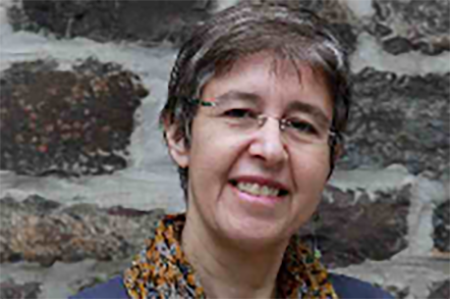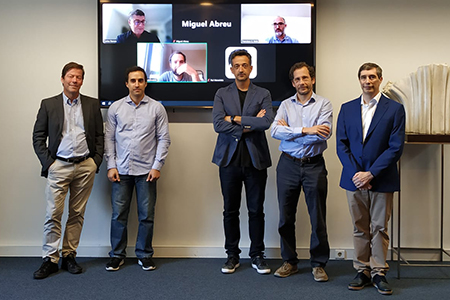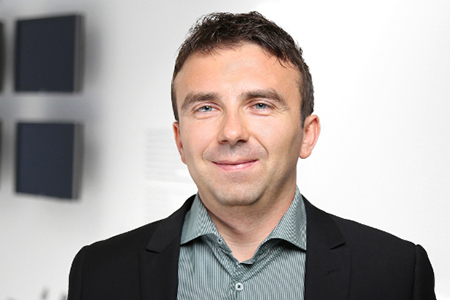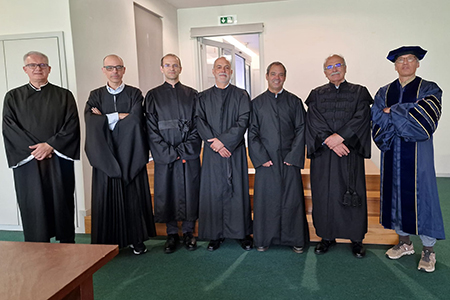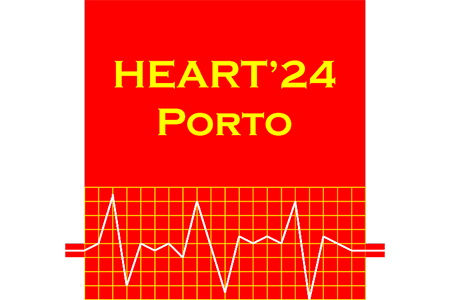Candidate
Maria José Gomes Pedroto
Date, Time and Location
July 22, 10:00, Sala de Atos of FEUP
President of the Jury
Carlos Miguel Ferraz Baquero-Moreno (PhD), Full Professor, Faculdade de Engenharia, Universidade do Porto
Members
Myra Spiliopoulou (PhD), Full Professor of Business Information Systems da Faculty of Computer Science da Otto-von-Guericke-University Magdeburg, Alemanha;
Manuel Filipe Vieira Torres dos Santos (PhD), Associate Professor with Habilitation, Department of Information Systems, Escola de Engenharia, Universidade do Minho;
Alípio Mário Guedes Jorge (PhD), Full Professor, Department of Computer Science, Faculdade de Ciências, Universidade do Porto (Supervisor);
Rui Carlos Camacho de Sousa Ferreira da Silva (PhD), Associate Professor, Department of Informatics Engineering, Faculdade de Engenharia, Universidade do Porto.
The thesis was co-supervised by João Pedro Carvalho Leal Mendes Moreira (PhD), Associate Professor in the Department of Informatics Engineering, Faculdade de Engenharia, Universidade do Porto.
Abstract
This work is centered on modeling and predicting Time-to-Event (TTE) episodes, and has two distinct purposes. The first purpose is to explore the usage of genealogical data for time to event prediction. Additionally, this work aims to aid medical professionals in improving the diagnosis and prognosis of patients afflicted with Hereditary Transthyretin Amyloidosis (ATTRv amyloidosis). This is a genetic disease with a strong historical background in the fishing villages of Póvoa do Varzim, northern Portugal. In order to explore the value of genealogical data for time-to-event prediction, this work has contributions in feature engineering, namely within the area of feature construction and selection. To this end, it explores and compares a summarizing approach focused on manually extracting meaningful features from genealogical trees with a more automated one using embeddings. It contributes to model construction by creating a multivariate data-oriented approach that tracks a patient’s risk of developing disease onset through different ages. It also explores the impact of combining different age models of neighboring time windows. Finally, it contributes to model evaluation by addressing the implementation issues of a business based
approach to evaluate the expected return of changing clinical guidelines. It also presents robust evaluation schemas that assist the multivariate data-oriented approach in selecting the best model. The application is focused on patients with ATTRv Amyloidosis. To present and characterize the work done, this thesis is structured into four main sections. It begins with an introduction and a presentation of ATTRv Amyloidosis from a medically historic perspective. Then it presents the relevant background by dwelling into the connection of time to event prediction with feature engineering, model construction and model evaluation, as well as introducing key concepts of genealogical studies. After this, it presents its technical contributions, in the form of the main publications that constitute this work (one paper by chapter). It ends with an epilogue section which overviews the work performed, shares the main conclusions, and, finally, discusses the thesis from a technical and clinical perspective.
Keywords: Time-to-Event Data; Data Modeling; Regression Models

